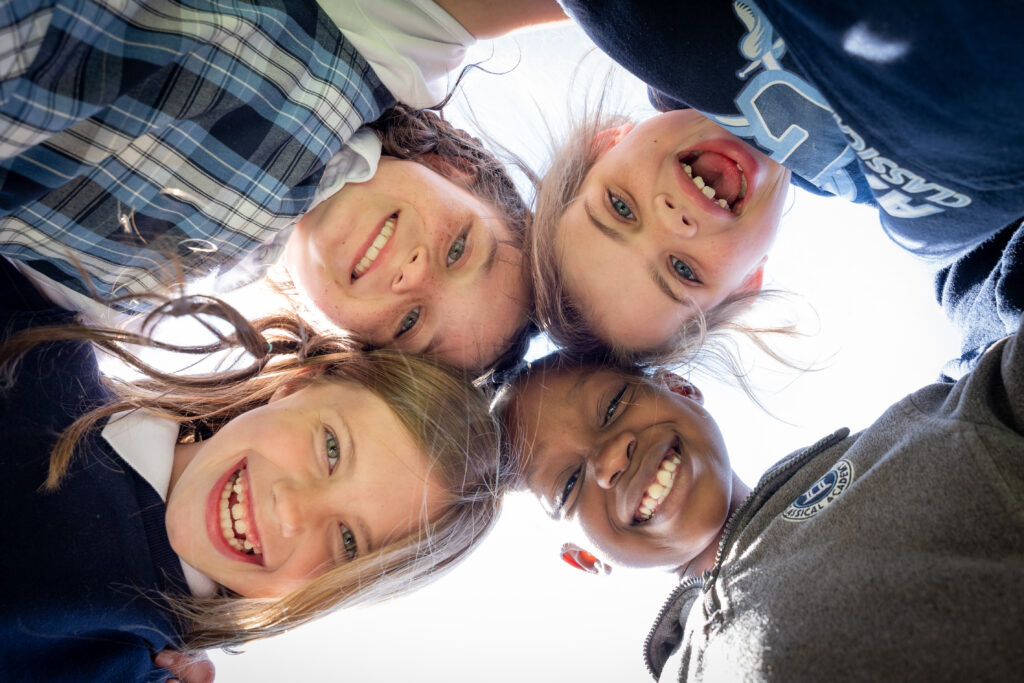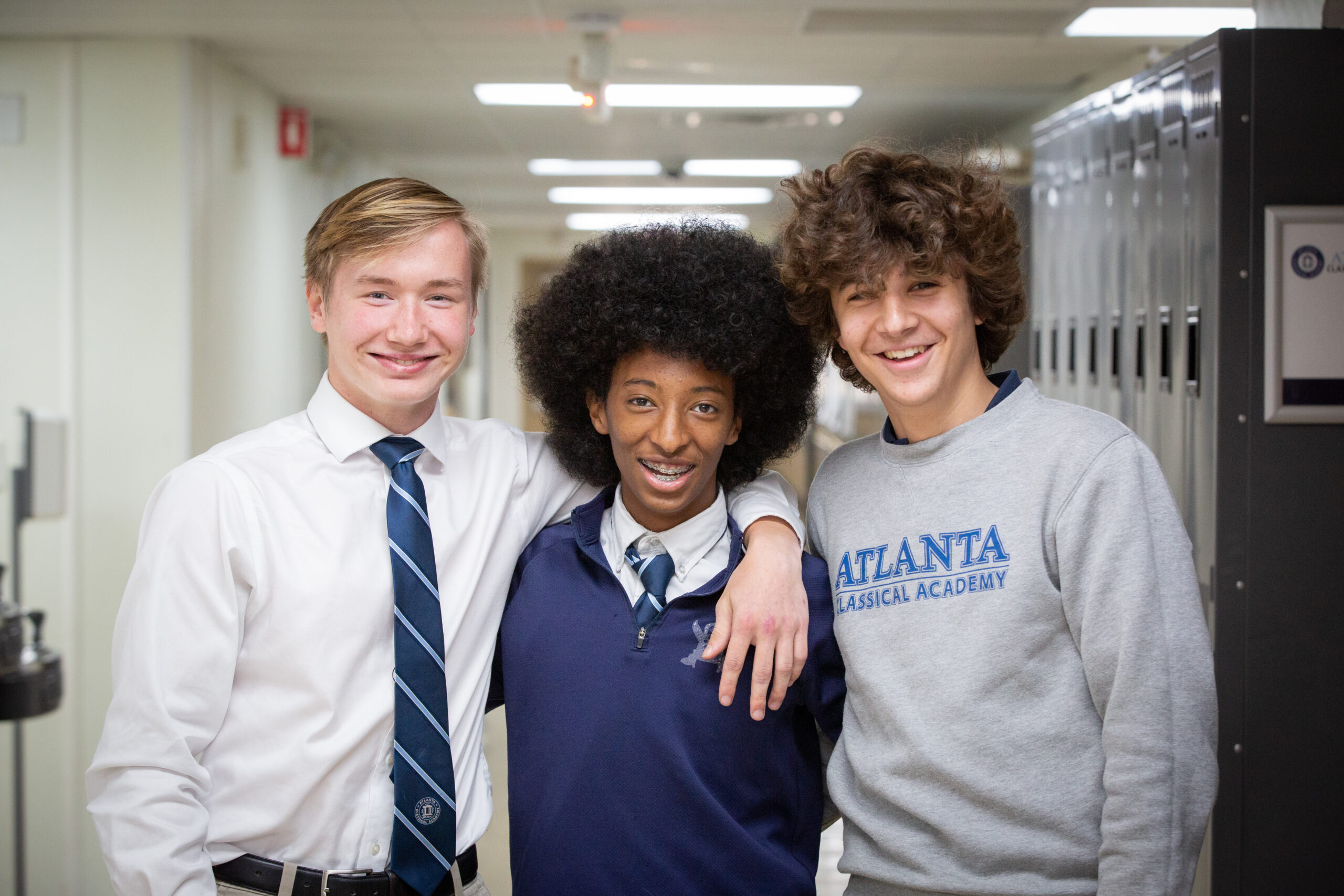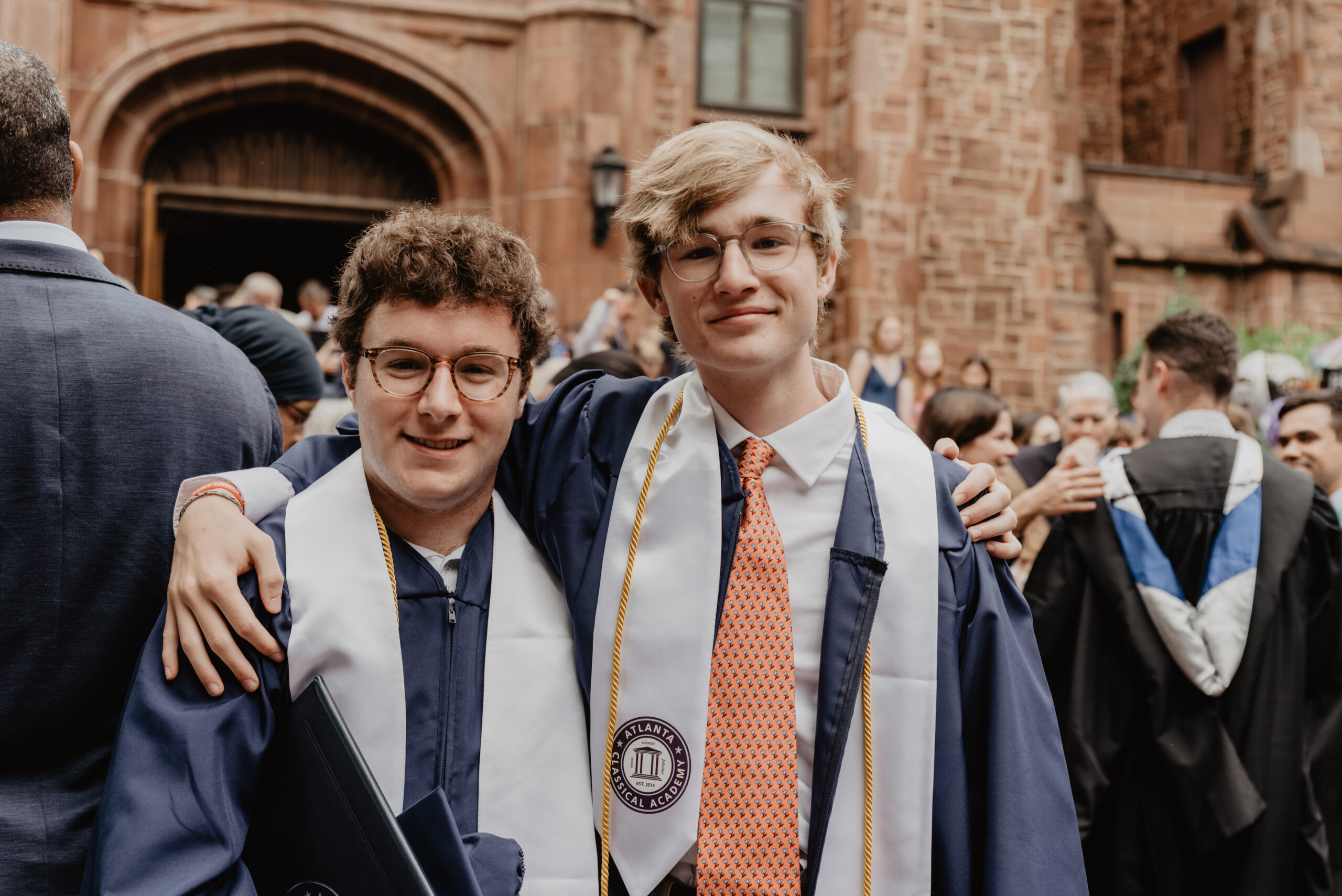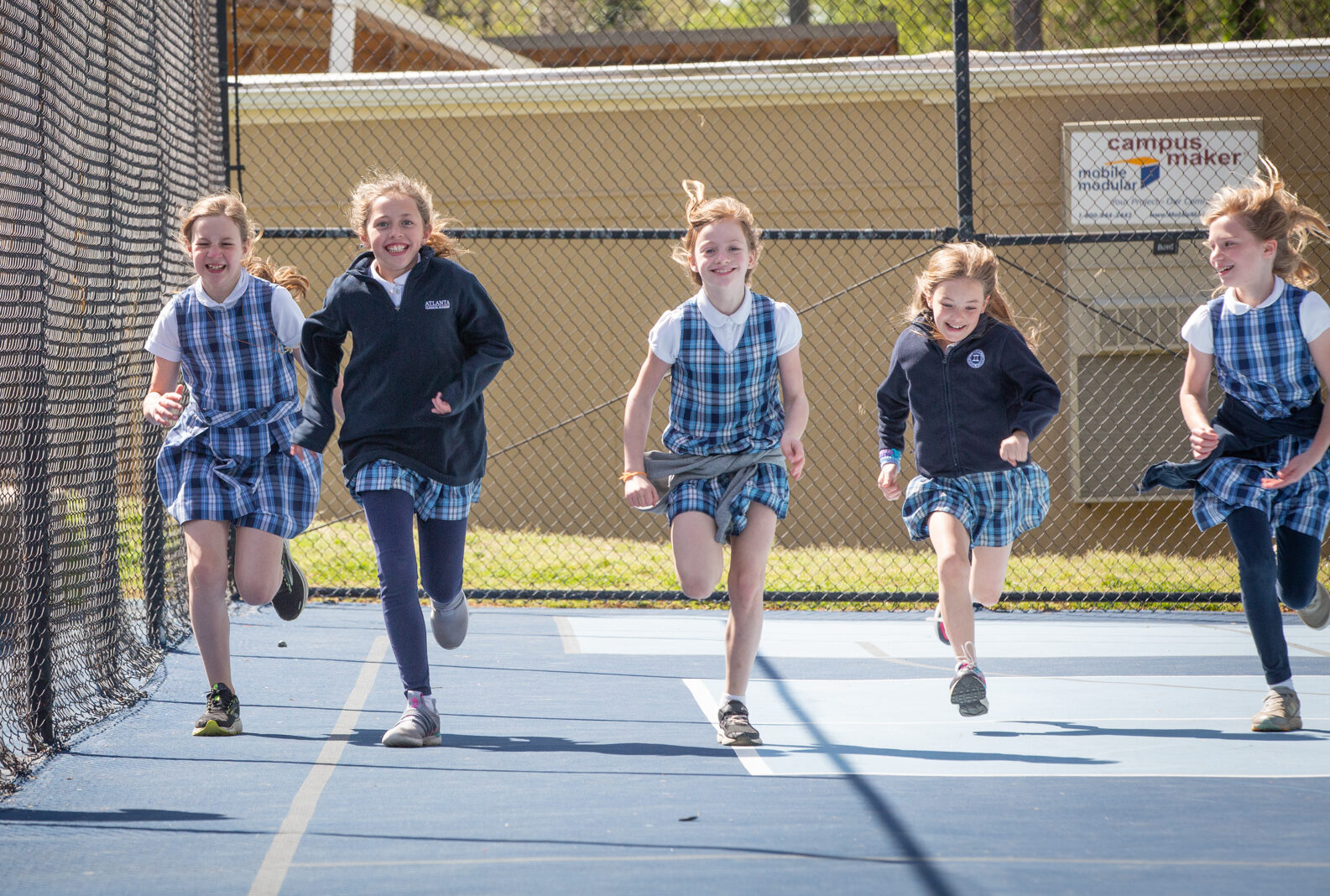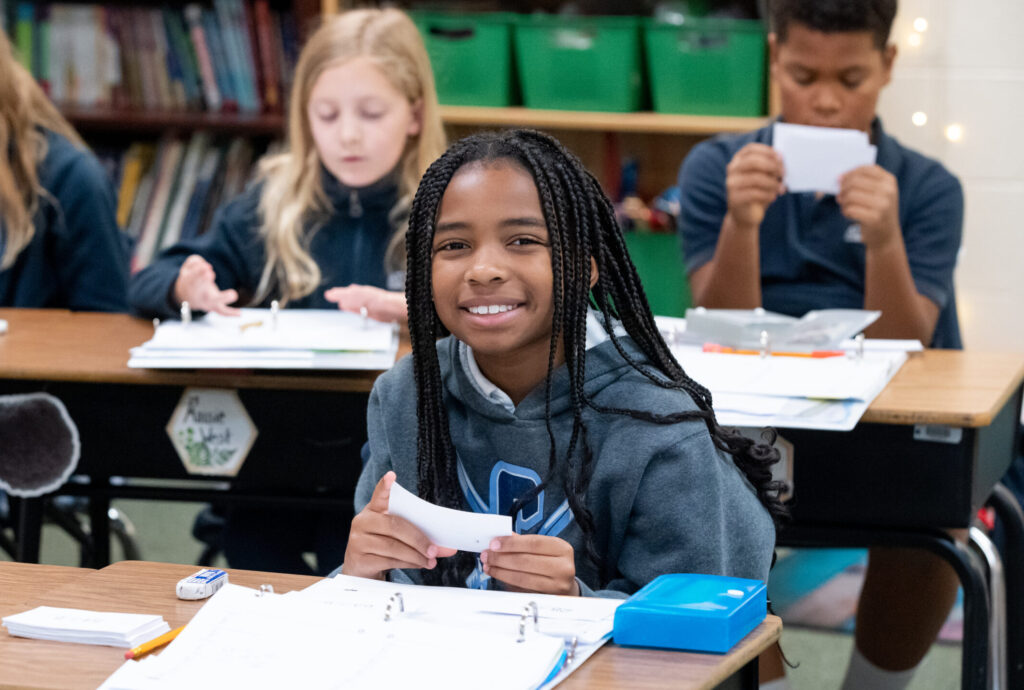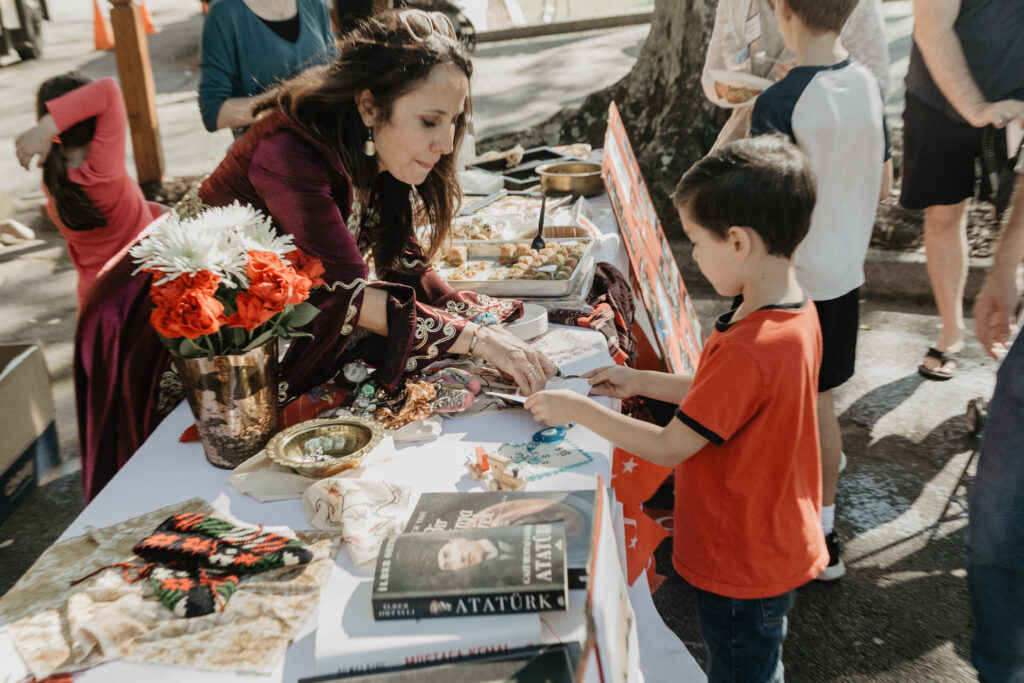Prospective Parent Resources: Lower School
Join our enrollment coordinator, Mrs. Janet Tomko, on a virtual tour of campus as we follow a day in the life of an ACA kindergartener.
Únase a nuestra coordinadora de matriculas de la escuela Atlanta Classical, Sra. Tomko, a un recorrido virtual de lo que sería un día de clase de un estudiante de Kindergarten.
Classical Education in the Lower School
The aim of classical education is to inform the minds and transform the hearts of students. Classical education seeks to enable students to receive, understand, and be shaped by what is true, good, and beautiful. Wilfred McClay, historian and author of Land of Hope: An Invitation to the Great American Story, mentions in his public discourse on classical education: “To know of many things is not the same thing as having been shaped by them, taken them in, made them one’s own – accepting their formative power and thereby being further equipped for the task of living well.” At ACA, we desire for our students to become knowledgeable, virtuous citizens, and to accomplish this, students need a foundation for learning. Based on the educational framework of the trivium (grammar: the tool of knowledge, logic: the tool of reasoning and rhetoric: the tool of communication and expression), the lower school is uniquely positioned to build the foundation for learning by establishing a solid catalog of basic knowledge and skills. Students are taught systematic and explicit phonics, develop academic vocabulary, learn the structure of a sentence, write in cursive, and memorize great poems… all in an effort to gain mastery in literacy, which leads to eventual critical thinking and logical analysis. Our approach to numeracy is focused on mastery, which is achieved through our curriculum’s intentional sequencing of concepts, which transitions beautifully from the concrete to the abstract. Students gain a depth of knowledge by progressing through our curriculum as past concepts are continuously connected to new material, causing students to think through concepts and learn by building on past learning. The classical experience in grammar school promotes the love of order, precise and edifying language, and objective standards of goodness, truth, and beauty. In summary, our content-rich curriculum alongside a faculty that is equipped and passionate about delivering this curriculum are what makes the lower school so special at ACA.
Literacy
Literacy is central to our teaching at Atlanta Classical Academy. We equip our students with the knowledge to become great readers and writers, and we use a systematic phonics program to teach reading through spelling and writing. We teach students to read by presenting a thorough, explicit, multisensory explanation of the sound-symbol relationship for the spelling patterns of English (phonics), as well as the rules and consistencies governing their use in English words.
Students hear a word, say the word, write the word, and read the word all while discussing the rules behind each spelling pattern. In Kindergarten, our students begin learning the sounds of the 72 phonograms and various spelling rules that make up our English language. Each grade progresses with this knowledge as students learn more difficult words. In fourth through sixth grades, students learn the Greek and Latin morphology behind their vocabulary words.
Students write every day. Starting in Kindergarten, students begin writing sentences that are dictated by their teacher and begin writing original sentences by the end of the year. By sixth grade, students are ready for advanced composition as they have progressed from the basics into more sophisticated writing through their journey in lower school.
Finally, through the learning of word recognition (phonogical awareness, decoding, spelling rules) and language comprehension (vocabulary, language structure, verbal reasoning, background and literacy knowledge), students are equipped to read great books. Starting from second grade, each grade reads four to six books together each year, and our teachers lead enriching and thoughtful discussions of these books during class. We want to fill the minds of our students with rich ideas, and reading great literature enriches students’ experience of the world.
Numeracy
“Mathematics is the art of explanation. If you deny students the opportunity to engage in this activity – to pose their own problems, make their own conjectures and discoveries, to be wrong, to be creatively frustrated, to have an inspiration, and to cobble together their own explanations and proofs – you deny the mathematics itself.” – Paul Lockhart
At ACA, we use a Singapore Math Approach to Mathematics. We use this approach because it aligns with our classical pedagogy of asking good questions to help students uncover the beauty and wonder of organizing and connecting different numbers, shapes and ideas.
Students are not taught sight words in literacy but rather the phonograms and the rules for decoding a word. Similarly, our work in math with moving from the concrete to pictorial to abstract makes the same progression and helps students think their way through increasingly difficult problems. We can pose challenging problems to students because we allow them to work with the building blocks before working with the big picture.
Students are learning fewer skills and concepts explicitly but instead use the skills and concepts together and throughout larger topics. Each year, students at all grades spend time on topics like place value, adding & subtracting, multiplying & dividing, mental math, and bar models. But in each grade these topics progress to more difficult skills and concepts. Student will compare the concrete and pictorial representations of these concepts with the abstract and see if the connections remain true. A Singapore Math Approach presents students with difficult problems, giving them the opportunity to uncover how what they already know connects to new discoveries.
Through this process of concrete to pictorial to abstract and the spiraling of the same fundamental topics with changes to skills, our students gain confidence in explaining their thoughts and ideas, increase automaticity in mental math, and are well grounded for higher-level abstract math classes in secondary school.
Student Services Department
We have a fully staffed Student Services Department and follow all legal guidelines and requirements to meet the needs of students who have learning differences. Our student support services team also helps teachers provide Tier 1, 2, and 3 interventions to students who are struggling and move forward in the eligibility process if necessary. We have a reading specialist and several Orton-Gillingham – trained teachers/teaching assistants when we identify students with learning differences in literacy. If more assistance is required, we begin delivering SST/RTI instruction that could lead to a student’s evaluation for special education. Our wonderful special education department is equipped to meet every student’s needs.
When a student struggles in math, we complete the same process as in literacy. Struggling students receive extra support from their teacher or a TA in math or literacy. Following legal guidelines means the student will typically receive extra instruction during Spanish or another special 2-3 times a week. If this instruction is able to improve the student’s understanding of the material, the student would stop receiving the extra support. If the student still struggles with this added support, the student would increase the amount of support he or she receives which may eventually lead to the special education evaluation.
Student-Teacher Ratio
Atlanta Classical Academy is a small school by design; there are 54 students per grade in all grades (K-12.) We have three kindergarten classes and the students are divided roughly equally into each class. We have one full-time teacher per classroom. We also have several assistant teachers that support our classes, literacy and math specialists that provide lessons and enrichment in the classrooms, in small groups, and one-on-one with students, and additional teachers for art, music, foreign language, and physical education.

